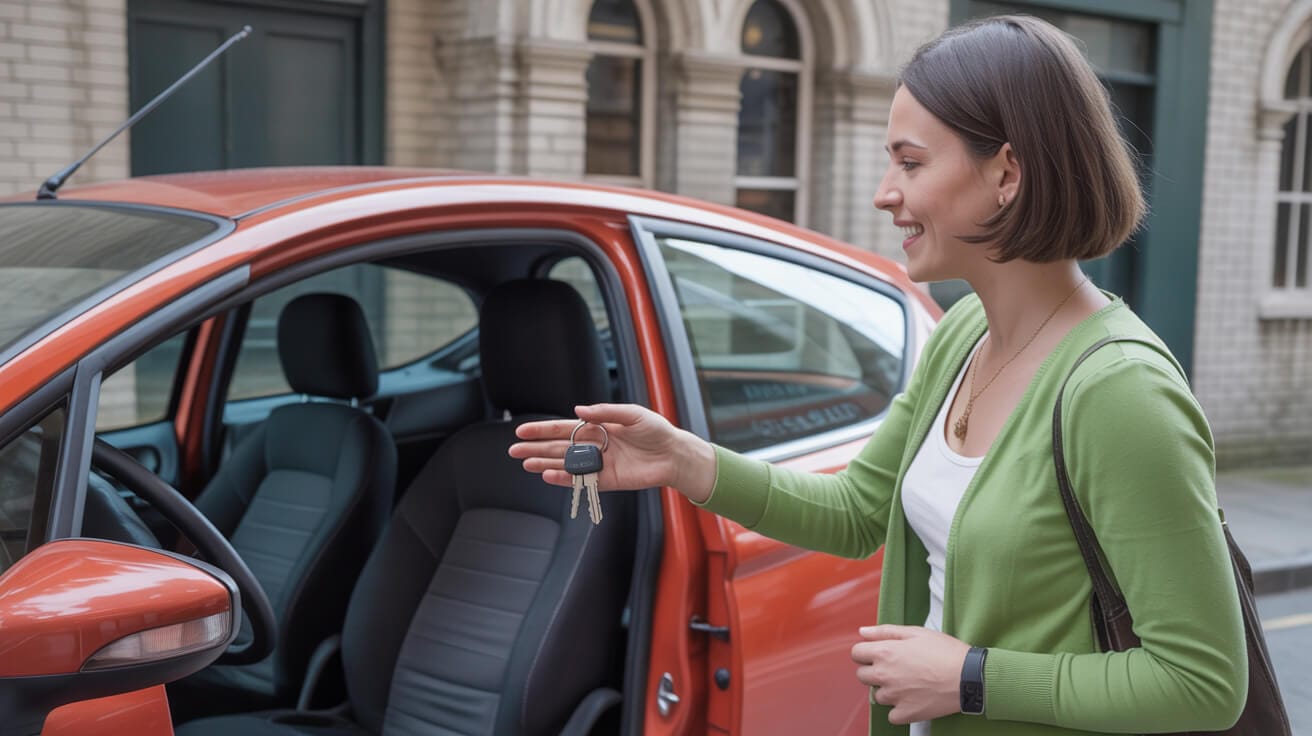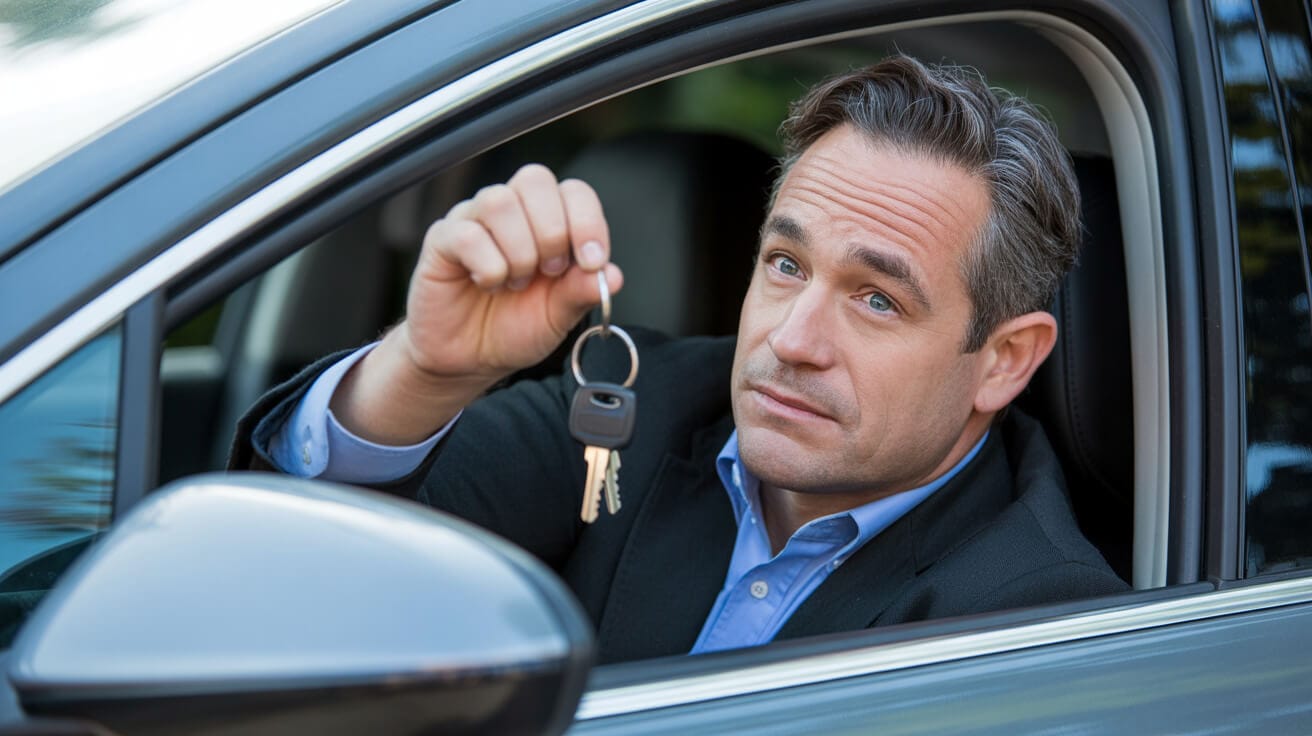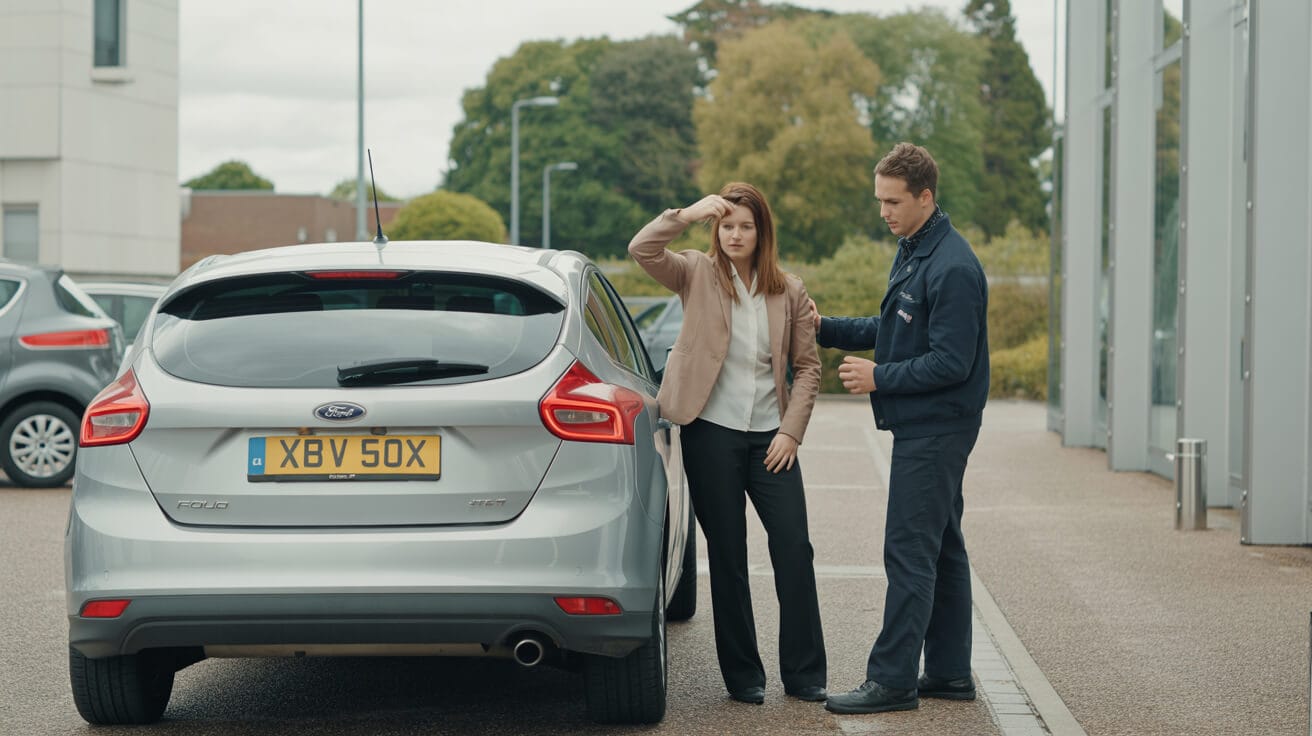Unlicensed Trade: Why Most “Locksmiths” Aren’t Regulated
Most UK locksmiths operate without any legal regulation, which means anyone can market themselves as a locksmith—regardless of training or background. That makes it essential for you to scrutinise credentials every time. Reputable locksmith companies expect and welcome such checks, immediately presenting branded ID, company information, and a physical address. If these details aren’t straightforward, that’s a warning: honest professionals always provide clear proof on request.
You should see branded clothing, a clearly marked van, and matching paperwork. When a locksmith resists questions about their business details, skips past identification, or hides behind vague phone numbers, take that as a red flag. Always compare the name, address, and contact information on their paperwork with what you already have. If anything is missing—no fixed address, no photo ID, no industry badge—look elsewhere for help.
Getting these details up front is your strongest first step to avoid being targeted by a scam.
When Credentials Are Clear
When a locksmith supplies paperwork unprompted, displays a physical photo ID, and is unfazed by checks on their memberships or location, you’re dealing with someone serious about your security.
High-Pressure Scenarios: How Scammers Target Stress Moments

Scam locksmiths prey on high-stress situations, like late-night emergencies or urgent lockouts. They bank on the fact that, under pressure, you may overlook credentials, unclear pricing, or odd behaviour. In contrast, real locksmiths slow the process, lay out options on paper, and never pressure you into a quick decision.
Upstanding firms hand you a written quote before working and leave you free to ask questions, step away, or verify details. If a locksmith insists on rushing, pushes for immediate payment—especially in cash—or dodges all paperwork, step back. These are textbook scam moves.
Never commence work solely on verbal promises. Secure a printed agreement up front; it’s critical to defending your interests if the outcome is poor or you face a dispute. Cheaters rely on you skipping this step.
Giving yourself more time, even in a rush, greatly lowers your chance of being taken in by a scam.
What Pressure Tactics Look Like
Watch for locksmiths who refuse to give you paperwork, say a receipt isn’t necessary, or suddenly “find” extra costs after arriving—all attempts to rush you past the point where you can safely walk away.
How to Use Red and Green Flags to Spot a Scam

The clearest way to assess any locksmith is to use a simple, direct checklist that points out both trustworthy and suspicious behaviours.
Here’s a quick table for fast reference:
| ✅ Green Flag | ❌ Red Flag | |
|---|---|---|
| ID | Branded van, uniform, photo ID shown | Plain vehicle, no ID, no uniform |
| Paperwork | Written quote or invoice provided up front | Verbal price only, avoids forms |
| Payment | Card payment welcomed, receipt issued | Demands cash only, no receipt |
| Demeanour | Encourages your questions and checking | Rushes, pressures, discourages checks |
If you’re seeing more than one red flag—especially no ID, no written proof, and pushiness about cash—it’s time to stop and reconsider. Green flags, in contrast, mean the locksmith is behaving professionally.
Your Decision Safety Net
Confirming just a few of these signals on arrival can prevent you from putting your security or money at risk. Take a moment to check; it pays off.
Credential Games: Assessing Badges, Logos, and Membership Claims

Shiny logos, “police-checked” labels, or big promises of trade badges can be little more than stickers unless you dig deeper. The best locksmiths invite you to check their credentials and walk you through verification live, in person. Request their trade association name and membership number—say, for the Master Locksmiths Association (MLA)—then use your own device to check this on the official association website.
Trustworthy professionals patiently wait as you confirm their bona fides, sometimes even guiding you through the process. Watch for people who get defensive or try to hurry things along instead. Anyone claiming “police approval” should clearly state which force and how that applies—no UK police body formally endorses locksmiths. If the storey changes or there’s reluctance, treat that as a signal to halt.
The rule is: question every badge and ask to see verification, not just branding. Locksmiths with nothing to hide will help you get the answers you need without hesitation.
Checking credentials on the spot transforms badges and logos from marketing to genuine proof.
How to Run a Membership Check
Get the trade association name and the membership number, go to the official body’s site, and confirm that both match—do this before giving consent for any work.
The Real Danger Zone: Pricing Games and Payment Pitfalls

It’s a classic: you’re quoted £49 on the phone, but the bill leaps at your door with charges for labour, hardware, or “emergency” status. Reputable locksmiths protect you from these surprises with itemised, written quotes and branded receipts—before any tools come out. Every extra gets explained, every payment option (card, bank, invoice) is available, and nothing happens without your approval.
Look for companies that keep audit trails: job sheets, invoices with serial numbers, receipts listing technician ID and warranty terms. Scam outfits dodge all of this. They want quick, hidden cash—often refusing to give documentation that links them to the job.
Consider this comparison:
| Payment Practice | Typical Scam Tactic | Trusted Professional Behaviour |
|---|---|---|
| Quotes | Vague, verbal, £49 “from” pricing | Written, itemised, and fixed before work |
| Payments | Cash only, avoids receipts | Card, bank, or digital, always documented |
| Audit Trail | No audit, missing paperwork | Branded, signed receipts, with warranty info |
If the locksmith flinches at paperwork, doesn’t offer a receipt, or won’t explain pricing up front, choose someone else. Robust documentation protects against scam disputes and supports you long after work is done.
Documentation is Protection
Every legitimate company expects you to want proof—quotes, job sheets, photos. That’s your real security, especially if you face future insurance or compliance claims.
Audit Trail and Aftercare: What Honest Service Looks Like

Trusted locksmiths deliver more than fast fixes. You should always be handed signed paperwork with complete job details, part numbers if relevant, technician information, and an aftercare guide. This pack forms a safety net—helping with warranty, future service, or any question that arises after the visit.
Reliable firms offer digital job records, respond quickly if you misplace paperwork, and make their team available for aftercare questions. Track record matters: genuine companies openly share their service data, such as positive customer ratings or first-time fix rates, and willingly provide these if you request them.
A full “evidence pack” should be your standard expectation, not a bonus. It will include everything you need for warranty support, potential landlord or insurance proofs, and peace of mind.
Aftercare Isn’t Optional
The ability to request job logs, receipts, or help after work has finished is the real sign of a company built for your ongoing safety—not just a quick profit.
Your Safe Locksmith Checklist: Step by Step Protection

Make every locksmith interaction scam-proof by following these steps:
Step 1: Before the Visit
Contact the company for a written quote, get the full business name, and request a photo of the technician’s ID by text or email. Note the association name and number, and verify these details on the official site.
Step 2: On the Spot
Check that uniform, van labels, and ID match what you were sent. Confirm that prices and options are written down and agreed before any work starts.
Step 3: After Completion
Only sign off when you have a completed job sheet, aftercare guide, and receipts or warranty paperwork—all of which can be photographed for added security.
Repeating this process means most scams won’t get off the ground—your vigilance is the best defence.
Your Steps, Your Safety
Ownership of the process puts the control in your hands and stacks the odds against anyone looking to take advantage.
Why Autolocks Ltd Is the Safer, Transparent Choice

Autolocks Ltd exists for those who value proof over promises. Every service call, whether for lost keys, emergency lockout, or business contract, ends with an evidence pack: branded job sheets, photos, receipts, and warranty information—all tied to the technician who attended and the time of service. These are systematically stored, so if you ever need aftercare, your details are a call away.
For fleet and business clients, Autolocks Ltd provides monthly compliance audits, signed logs, and an open channel for insurance paperwork or site records. Emergency calls are rigorously documented—live consent forms, arrival and departure timestamps, and transparent handover stages.
No work happens off the books. Your aftercare is proactive, your documents retrievable, and your support line always open. Autolocks Ltd’s standards were designed not just to win your trust for the first service, but to keep it for years to come.
Choose Autolocks Ltd when your priority is dependable documentation, verified aftercare, and transparent support from start to finish. If you want clear records, honest aftercare, and full support beyond the front door, you’ll always be in secure hands.
Frequently Asked Questions
How can you verify a UK auto locksmith’s legitimacy before letting them near your vehicle?
A true UK auto locksmith removes the guesswork: legitimacy is proven, not promised. Before any work, look for a real, local address displayed on both their website and a clearly branded van—the first philtre against invisible, fly-by-night operators. Expect the locksmith to arrive in professional uniform with a visible name badge and ready-to-present photo ID that matches both the company records and your booking. A technical credential like current accreditation with the Master Locksmiths Association (MLA) or Approved Locksmiths Scheme must be instantly verifiable—either via web search or a scan of their association number. The most trusted engineers, like those at Autolocks Ltd, not only welcome your checks, they provide evidence before being asked: live association links, branded job sheets, and digital audit trails for every job.
Trust is earned when credentials speak for themselves and every detail is out in the open.
The legitimacy checklist that disarms fakes
- Match the address: Real, local, and consistent across all documents and vehicles.
- Verify trade membership: Check association numbers yourself—never take it on faith.
- ID and uniform: They present, not conceal, professional ID—expect a name you can see and check.
- Branded paperwork: Quote, job sheet, and aftercare documents all carry the same company details.
What makes a fake locksmith so dangerous in a real emergency?
Criminal locksmiths prey on panic. When you’re locked out—cold, stressed, with family or work pressures—fake operators exploit your urgency, skipping verification, skipping written quotes, and blitzing you with “solutions” before you know what’s at stake. These scammers move fast: no paperwork, off-the-books cash demands, and vanishing after a destructive, risky service with no receipt, no contact, and no recourse if something fails. A trusted provider like Autolocks Ltd steers you out of the panic spiral: you’re walked step-by-step through identification, options, and cost, all documented in writing before a single lock turns. Digital receipts, full disclosures, aftercare contacts, and a GDPR-compliant audit trail transform the chaos of lockouts into a controlled resolution—proof that you can use for insurance, warranty, and peace of mind.
A real professional brings calm by making every step transparent and every action leave a trace.
Emergency-proof your outcome—what real locksmiths do differently
- Options and costs reviewed calmly before any fix is started, no matter the hour.
- Consent and identity records are logged in real-time; you sign off before and after work.
- Every part, job, and payment is tracked digitally—no cash-only, no “off the books.”
- Your follow-up is protected—real operators invite reviews, offer warranties, and don’t disappear.
Which warning signs should make you step back when a locksmith arrives?
A blank van and a vague introduction are red flags: professional UK locksmiths cloak every job in visible trust signals. Before the first handshake, review the vehicle branding—does it match the website and quote? Genuine engineers show credentials unprompted: branded ID, a job sheet with itemised parts and serials, consent forms ready for your signature. Rogue actors dodge detail—offering only a business card, generic quote, and no trace of trade association. Sloppy paperwork, misspelt names, and photocopied “certificates” are not just errors—they show intent to deceive. Autolocks Ltd codifies the right approach: paperwork matches up with digital records, staff names, audit trails, and clear operator photos, all confirmed with your booking.
Zero ambiguity—what should always match?
- Vehicle, van stock, and staff badge: mirror the booking confirmation.
- Job documentation: presented immediately, not only on request, with photo and signature space.
- Association credentials and job numbers: —live-checked online, not just referenced.
- Photo evidence and consent logs: —providing a future-proof record you own.
How can you outsmart fake IDs and badge clones used by imposters?
Imposters have levelled up—slick badge printers, trade body logo downloads, even fake “insurance approved” stickers circulate freely. The single point of failure in these scams is centralised verification: always check association numbers or engineer IDs directly on official MLA or trade association sites. Don’t be fooled by invented “police” or “insurance” approval logos; UK insurers and police forces do not certify locksmiths. Digital or printed paperwork that’s even one letter off, with mismatched staff names or a phone number you can’t tie back to a central office, aren’t accidents—they’re designed to deflect scrutiny. At Autolocks Ltd, you’ll find staff invite you to check in real time, with online directories, live documentation, and patient support as you confirm their legitimacy.
If asking to verify makes your locksmith uncomfortable, stop—because honesty never hides from the truth.
Real-time credential proof steps
- Look up every professional membership number while the locksmith waits.
- Call association or company offices directly to check staff names and assigned vehicles.
- Treat police or insurer branding as red flags not green lights—none are official sponsors.
- Confirm all website, phone, and ID numbers match across paperwork, van, and digital presence.
What pricing tactics and billing traps are unique to rogue operators?
The “from £49” bait is a classic: it balloons into hundreds for vague “emergency” or “special parts” surcharges as soon as work begins. Rogue locksmiths prefer verbal quotes, and cash payments—deliberately avoiding branded invoices or receipts. Without paperwork, you lose all leverage if something breaks, isn’t fixed, or an insurance claim is denied. In contrast, authorised locksmiths such as Autolocks Ltd go beyond visible pricing: itemised digital quotes are sent before approval, and every new key, lock, or part installed is recorded by serial number and assigned to your property. Receipts are emailed instantly, with audit logs tying payment, job number, and part used. Any sign of price-drift or reluctance to document costs, pause and demand clarity—or walk away.
Bulletproof your cost—best pricing defence
- Insist on a written, fixed quote with every step and part listed before authorising work.
- Never agree to vagaries like “emergency,” “drilling,” or “labour extras” unless documented up front.
- Get receipts, part numbers, and engineer details on every job—printed or digital.
- Treat missing paperwork as a deal-breaker; it voids warranty, insurance, and follow-up support.
Why does real aftercare, warranty, and documentation matter in locksmith work?
A lock that works today but comes with no documentation is a liability, not a solution. Only professional locksmiths close every job with a signed handover, warranty conditions stated in writing, and a recorded chain of events: operator, parts, time, and worksite photos—compliant with GDPR and insurance. For landlords or fleet clients, secure digital records and evidence packs mean you can push a button and retrieve service history, replacement dates, and compliance metrics for audits or legal action. If you ever need to challenge a repair, defend a warranty, or hand evidence to police or insurers, a complete record is your strongest asset. Autolocks Ltd sets the benchmark: customer portals grant instant access to job logs, key codes, and aftercare contacts, with open review and feedback lines so you’re always in control—not at the mercy of lost paperwork or vanished contractors.
A locksmith’s reputation is built not on locks, but on the clarity and strength of the record left behind.
Make every fix an investment in your security
- Receive signed job sheets, digital logs, and accessible warranty documentation by default.
- Every code, part, or transponder added to your vehicle or property is assigned and recorded to you.
- Warranty and support are transparent, with review requests that keep standards high.
- Secure contacts and evidence are never hidden—open access is assurance, not an option.
Take command of your security—demand transparent evidence, fully logged work, and lasting aftercare every time. Choosing Autolocks Ltd means every visit is visible, every cost explained, and every fix future-proofed with real records and real accountability.







